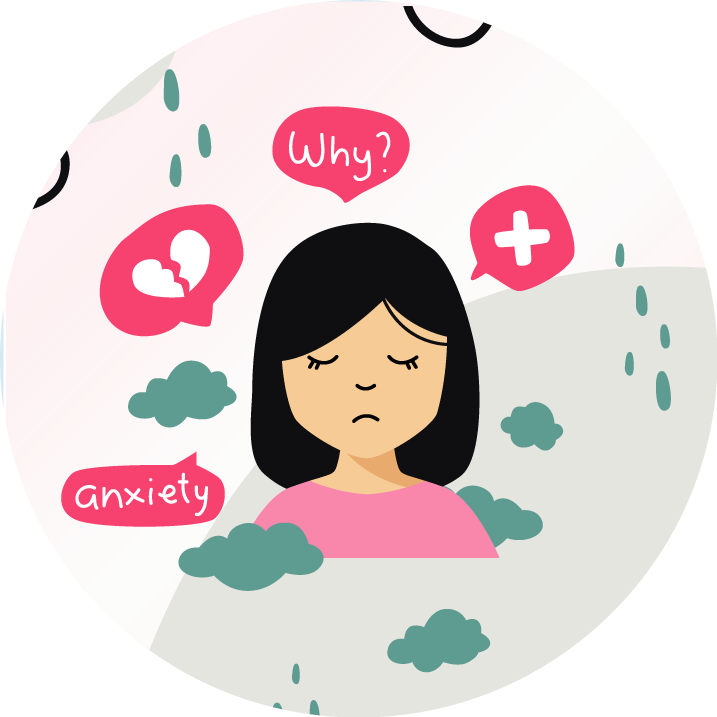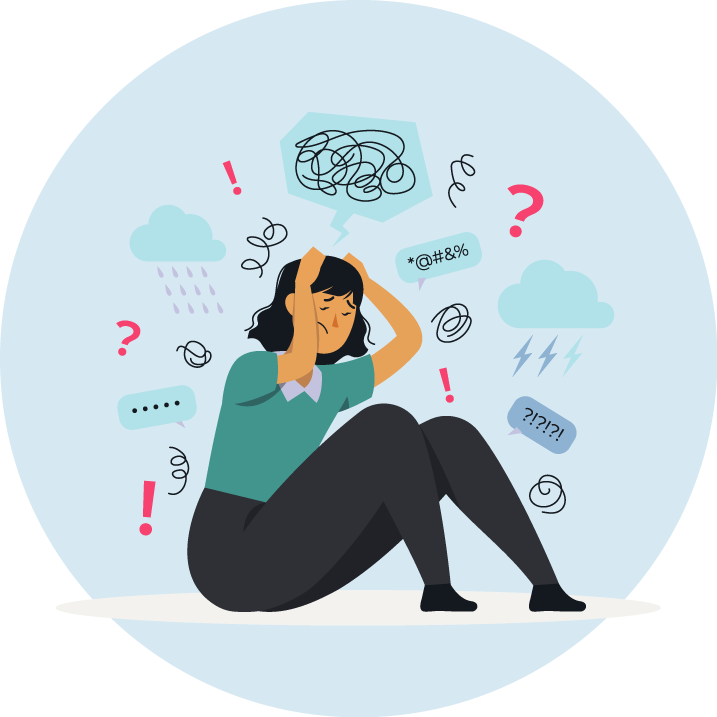Common Barriers to Forgiveness

Common Barriers to Forgiveness
August 02 2025 TalktoAngel 0 comments 232 Views
Many people see forgiveness as a potent act of release that frees the forgiver and the forgiven from the bonds of bitterness and emotional suffering. While most people acknowledge the benefits of forgiveness—improved mental health, reduced stress, and healthier relationships—practicing it is not always easy. Many people find themselves stuck in cycles of anger, bitterness, or grief, unable to let go of past offences.
This blog explores the common psychological and emotional barriers to forgiveness and offers insight into how individuals can begin to navigate these blocks to move toward healing.
1. Deep Emotional Pain
When a person is deeply hurt through betrayal, abuse, abandonment, or injustice, the emotional scars can feel too raw to heal. In such cases, forgiveness may be perceived as minimising the pain or invalidating the experience.
- Why does it become a barrier? Pain can become entwined with one’s identity, making forgiveness feel like a threat to that identity.
- How to work through it: Healing begins with validating your own emotions. Acknowledging the pain, seeking therapy, and allowing yourself time to grieve can help release the emotional charge, making forgiveness feel more accessible.
2. Fear of Being Hurt Again
Another significant barrier is the fear that forgiving someone will make you vulnerable to future harm. This is especially true in relationships where patterns of emotional abuse or betrayal exist. People may associate forgiveness with reconciliation, fearing that it gives the offender a free pass to repeat their behaviour.
- Why it becomes a barrier: Forgiveness is often misunderstood as trust. Rebuilding trust takes time — it doesn’t automatically follow forgiveness.
- What to do: Recognise that forgiveness is a personal journey, something you choose for your healing. But trust? That has to be earned again, through consistent actions over time. Establishing healthy boundaries and learning to distinguish forgiveness from reconciliation can protect you while still allowing emotional release.
3. Need for Justice or Retribution
Many individuals struggle to forgive because they feel that the offender has not been held accountable. The internal narrative becomes: “They don’t deserve forgiveness until they apologise or pay for what they did.”
- Why it becomes a barrier: People seek fairness, and when injustice remains unresolved, forgiveness feels like surrendering moral ground.
- How to work through it: Remember, forgiveness is not about excusing wrong behavior. It’s about freeing yourself from being emotionally controlled by someone else’s actions. Forgiveness and justice can coexist; you can choose to let go of grudges while still seeking responsibility.
4. Ego and Pride
Sometimes, the inability to forgive stems from the ego’s need to be right or superior. Holding on to resentment can give people a sense of power or moral high ground.
- Why it becomes a barrier: Forgiveness may be seen as a sign of weakness or submission, especially in relationships marked by power struggles.
- How to work through it: Practice humility and empathy. Reflecting on times when you’ve needed forgiveness can build perspective. It reminds us that all humans are fallible and worthy of compassion.
5. Lack of Emotional Skills
Forgiveness requires emotional regulation, self-awareness, and empathy—skills that not everyone has had the opportunity to develop. If someone has grown up in an environment where forgiveness was never modelled, they might not know how to approach it.
- Why it becomes a barrier: Without emotional tools, people may become overwhelmed by anger or numbness, unsure of how to move forward.
- How to work through it: Working with a therapist, practicing mindfulness, or engaging in self-reflective exercises like journaling can help cultivate the emotional intelligence needed to forgive.
6. Cultural and Familial Beliefs
In some cultural or family systems, forgiveness may be discouraged, especially if it’s interpreted as tolerating injustice or showing weakness. People may internalize beliefs that encourage vengeance, silence, or suppression of emotions.
- Why it becomes a barrier: Cultural conditioning can create guilt or confusion around forgiveness, especially when it’s seen as disloyalty to one’s group or values.
- How to work through it: Begin by questioning inherited beliefs. Ask yourself what forgiveness truly means to you. Understanding your values apart from societal expectations can empower you to make choices aligned with your emotional well-being.
7. Unresolved Self-Blame or Shame
Sometimes the hardest person to forgive is oneself. If someone feels they contributed to their suffering or failed to prevent harm, self-blame can become a heavy barrier to forgiving others.
- Why it becomes a barrier: When self-worth is compromised, individuals may feel they don’t deserve peace, or they may project their guilt onto others as a way to cope.
- How to work through it: Practising self-compassion is key. Therapy modalities like Compassion-Focused Therapy (CFT) or Internal Family Systems (IFS) can be particularly helpful in separating self-blame from truth and encouraging inner healing.
Conclusion
Being forgiving is a multi-step process that frequently entails facing your expectations, anxieties, and grief. It doesn't imply forgetting, forgiving, or making amends with people who have wronged you. It doesn’t mean forgetting, excusing, or reconciling with those who hurt you. Rather, it is an act of self-liberation—choosing to release the emotional weight so you can live with more peace, health, and emotional freedom. Understanding the barriers to forgiveness helps normalize the struggle and reminds us that forgiveness is a courageous journey, not a simple choice. Whether you're navigating betrayal, grief, or long-held resentment, support is available.
Platforms like TalktoAngel, a trusted online counselling service, connect individuals with the best therapists in India—licensed professionals who are trained to guide you through complex emotional processes like forgiveness. You may start your recovery process from the convenience and seclusion of your own home, thanks to the flexibility of virtual sessions. If you're struggling to forgive yourself or others, don’t carry the weight alone. Reach out to a qualified mental health professional through online counselling and take your first step toward emotional freedom and inner peace.
Contributed By: Dr. (Prof.) R. K. Suri, Clinical Psychologist and Life Coach, &. Ms. Sangeeta Pal, Counselling Psychologist.
References
- Enright, R. D., & Fitzgibbons, R. P. (2015). Forgiveness therapy: An empirical guide for resolving anger and restoring hope (2nd ed.). American Psychological Association. https://doi.org/10.1037/14526-000
- Worthington, E. L., Jr. (2006). Forgiveness and reconciliation: Theory and application. Routledge.
- Toussaint, L., Worthington, E. L., & Williams, D. R. (Eds.). (2015). Forgiveness and health: Scientific evidence and theories relating forgiveness to better health. Springer. https://doi.org/10.1007/978-94-017-9993-5
Leave a Comment:
Related Post
Categories
Related Quote

“Anxiety is a thin stream of fear trickling through the mind. If encouraged, it cuts a channel into which all other thoughts are drained.” - Arthur Somers Roche

"It is okay to have depression, it is okay to have anxiety and it is okay to have an adjustment disorder. We need to improve the conversation. We all have mental health in the same way we all have physical health." - Prince Harry

“My anxiety doesn't come from thinking about the future but from wanting to control it.” - Hugh Prather

“Stress is an ignorant state. It believes everything is an emergency.” - Natalie Goldberg

“Depression is your body saying, ‘I don’t want to be this character anymore. It’s too much for me.’ You should think of the word ‘depressed’ as ‘deep rest.’ Your body needs to be depressed. It needs deep rest from the character that you’ve been trying to play.” - Jim Carrey
Best Therapists In India






























SHARE